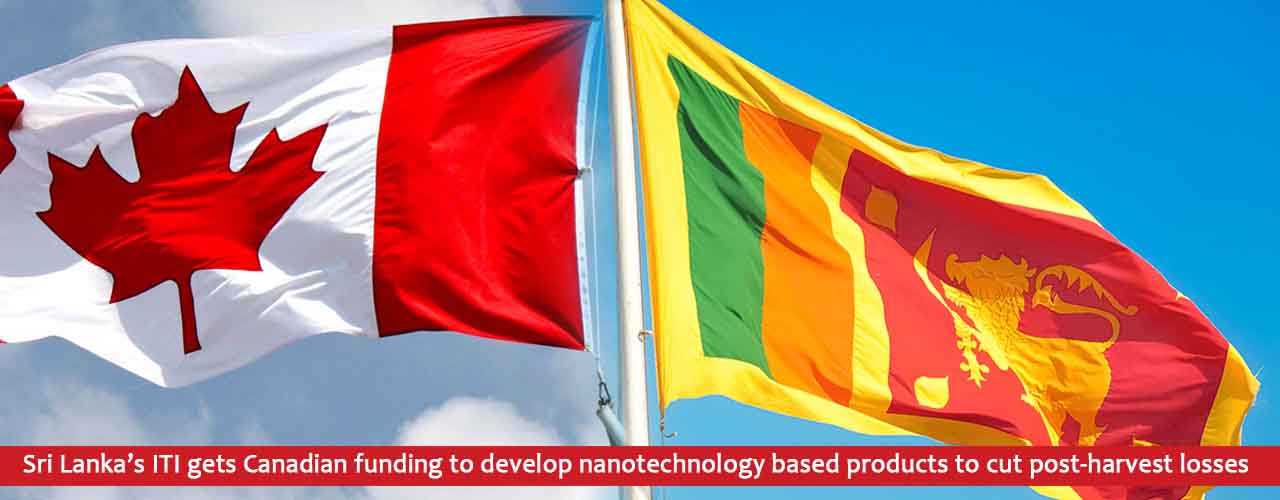Sri Lanka’s ITI gets Canadian funding to develop nanotechnology based products to cut post-harvest losses
The High Commission of Canada in Sri Lanka has reportedly said that Sri Lanka’s Industrial Technology Institute (ITI) has developed nanotechnology based products to keep fruits fresh and cut post-harvest losses with the help of Canadian funding.
“The research scientists utilizing cutting-edge nanotechnology have successfully developed two new products to extend and optimize the use of hexanal for pre- and post-harvest applications to commercial fruits, such as bananas, papayas and citrus,” the High Commission of Canada has said in a statement.
The statement has noted that the products will be commercially produced by Hayleys Agriculture Holdings Ltd.
According to reports, one technique to keep fruits fresh involves the regulated release of Hexanal, a naturally extactable compound that helps slow the ripening of fruit.
“The research work has included an extensive study of the biosafety of hexanal with data clearly showing that hexanal is harmless to honey bees, natural pest enemies, earthworms as well as being safe for humans,” the statement has noted.
Reports further state that a ‘bio-wax’ product, which was an edible coating, has also helped reduce moisture loss and spoilage from post-harvest diseases.
The Canadian International Food Security Research Fund (CIFSRF) has supported a partnership involving Canada’s University of Guelph and research agencies in South Asia to cut post-harvest losses.
In Sri Lanka the Industrial Technology Institute (ITI) of the Ministry of Science, Technology and Research had received Rs. 94 million research grant for the project which spanned from 2012 to 2018.
The products are expected to cut post-harvest losses and get better prices in domestic and export markets.
Canada has also reportedly funded another project under an Agro-Economic Development Project.
Technology was also provided to Nirveli Banana Producers and Processors Association in Jaffna to produce a bio-degradable paper from waste banana-fibre which can be used in place of polythene to package and transport fruits, reports also state.
OSL take:
The assistance provided by the Canadians to develop nanotechnology products to aid in the cut of post harvest losses has opened up opportunities for similar projects as well as for the advancement of Sri Lanka’s agriculture sector.
| Article Code : | VBS/AT/20180326/Z_8 |

